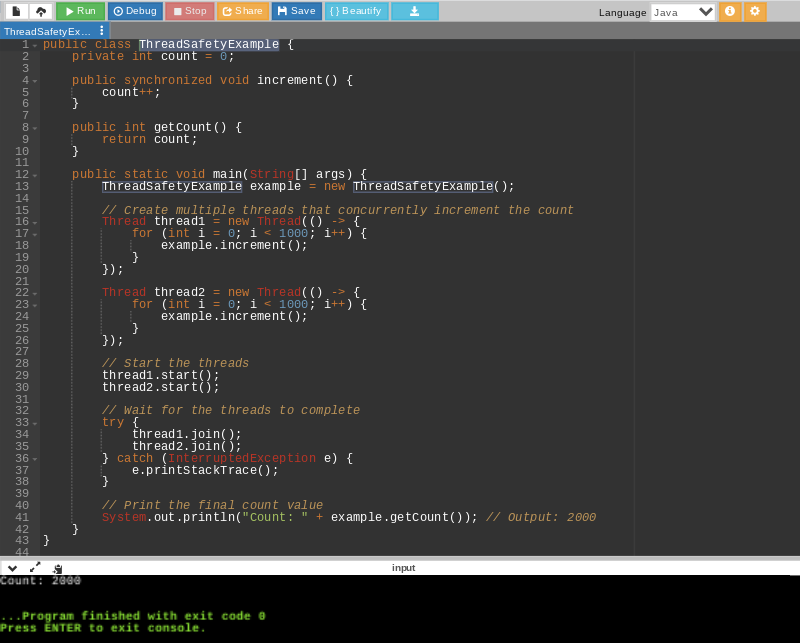Why Are Strings Immutable in Java? Recognizing the Core Principles
Why Are Strings Immutable in Java? Recognizing the Core Principles
Blog Article
What Is Unalterable Strings and How It Works
In the world of programs, understanding the principle of unalterable strings is critical for creating safe and robust applications. Immutable strings refer to strings that can not be modified after they are produced, making sure data integrity and predictability within the code. This basic principle plays a crucial duty in numerous shows languages and offers an unique strategy to taking care of data. By discovering the details of exactly how unalterable strings operate, one can reveal a globe of benefits and possibilities that can boost the quality and effectiveness of software program development.
The Basics of Immutable Strings
Immutable strings, as an essential idea in programming, are character series that can not be altered once they are produced. This indicates that as soon as a string is assigned a value, that value can not be changed. In languages like Python and Java, strings are immutable items, causing different implications in regards to memory management and information honesty.
One of the key advantages of unalterable strings is that they offer a complacency in data adjustment. Given that the content of an unalterable string can not be changed, it makes sure that the initial information continues to be intact, lowering the danger of unexpected modifications throughout program implementation (Why are strings immutable in Java?). This residential or commercial property additionally streamlines debugging procedures, as designers can trust that once a string is defined, its worth will certainly not be unintentionally changed
When a brand-new string is created based on an existing one, instead than customizing the initial string, the new value is saved separately. Generally, comprehending the basics of unalterable strings is important for understanding programming principles and optimizing code effectiveness.
Benefits of Immutable Strings
Structure upon the safety and efficiency benefits of immutable strings, their benefits include enhancing code integrity and simplifying concurrent programming jobs. By being immutable, strings can not be modified after production, which removes the danger of unintended adjustments in the data they save. This fundamental immutability makes sure that as soon as a string is created, its worth continues to be consistent throughout the program's execution, minimizing the opportunities of insects triggered by unexpected changes.
In addition, unalterable strings contribute to code reliability by making it less complicated to reason regarding the state of a program. Because strings can not be altered, designers can trust that a string will constantly hold the exact same worth, simplifying debugging and upkeep initiatives. This predictability results in more reputable and stable codebases.

Execution in Programming Languages
Within various programming languages, the incorporation of unalterable strings is an essential element that affects just how information is taken care of and my website controlled within code structures. The application of immutable strings varies across different programs languages, with each language providing its very own systems to support this principle.

In comparison, languages like C and C++ do not have built-in assistance for immutable strings. Programmers in these languages have to by hand carry out immutability by imposing guidelines within their code to avoid straight modifications to string items.
Best Practices for Collaborating With Unalterable Strings
When handling unalterable strings in programming languages like Java and Python, adhering to ideal practices guarantees effective and safe information control. One of the essential ideal methods is to utilize StringBuilder or StringBuffer rather than directly adjusting strings, particularly when handling extensive concatenation operations. These courses offer mutable choices for string control, assisting to stay clear of unneeded memory allotments and boosting efficiency.
One more ideal technique is to utilize string interpolation or format functions provided by the language rather than hand-operated concatenation. This not just boosts readability however likewise aids in stopping usual risks such as unintentional string modifications. In addition, when dealing with sensitive try here information such as passwords or API secrets, it is important to stay clear of saving them as ordinary text in unalterable strings. Using protected storage space mechanisms like char varieties or specialized collections for handling delicate information helps alleviate safety and security threats related to immutable strings.
Real-world Applications and Instances
Checking out sensible executions of immutable strings in different industries discloses their considerable impact on information honesty and system integrity. In the medical care market, immutable strings play an important role in guaranteeing the safety and security and privacy of client information. By protecting against unapproved adjustments to sensitive details such as medical records and prescriptions, unalterable strings assist maintain compliance with strict personal privacy policies like HIPAA.
Monetary institutions additionally take advantage of the immutable nature of strings to boost the safety and security of customer information and transaction documents. Unalterable strings aid avoid fraud and unapproved modifications to monetary details, offering a durable defense versus cyber hazards and ensuring the depend on and self-confidence of clients.

Conclusion
Finally, immutable strings are taken care of and stable series of characters that use advantages such as thread safety and security and enhanced performance in programming. They are implemented in different shows languages to guarantee information honesty and safety and security. Ideal practices for collaborating with unalterable strings include avoiding direct alterations and utilizing techniques that return brand-new string things. Real-world applications of immutable strings include information encryption, caching, and string control tasks.
Immutable strings refer to strings that can not be changed after they are developed, ensuring information stability and predictability within the code. When a new string is developed based on an existing one, rather than customizing the initial string, the new worth is Resources saved independently.In languages like Java and Python, strings are unalterable by default, meaning that when a string things is developed, its worth can not be transformed - Why are strings immutable in Java?. Best techniques for functioning with immutable strings consist of staying clear of straight alterations and making use of approaches that return new string objects. Real-world applications of unalterable strings include information security, caching, and string manipulation jobs
Report this page